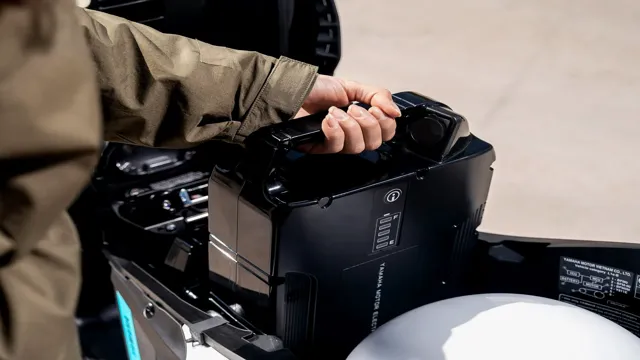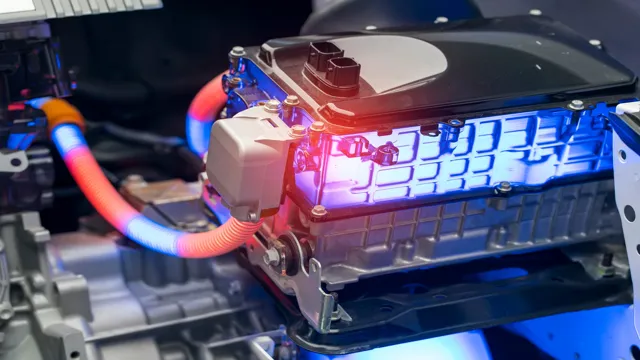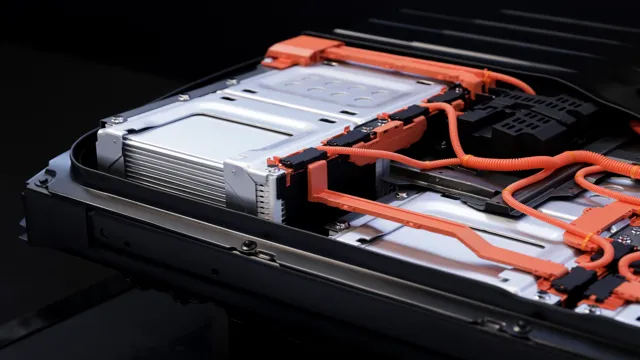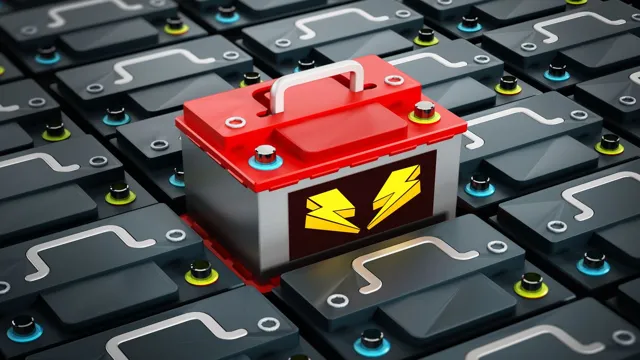Battery Stockpile: The Race among Electric Car Makers to Power up the Future
Electric vehicles (EVs) are becoming increasingly popular, and with that comes the need for battery production. Battery makers are struggling to keep up with the high demand, and therefore electric car makers are stockpiling their own supply. But how much battery stockpile do they actually have? Analyzing the data can give us a better understanding of the electric car industry’s current standing and future potential.
Let’s dive deep into the numbers behind electric car makers’ battery stockpile.
Market Overview
Electric car makers are stockpiling batteries to maintain a steady supply of power for their cars and to ease their production processes. With the increasing popularity of electric cars, leading car manufacturers and technology firms are investing heavily in the development and production of lithium-ion batteries, which are the primary source of power for electric vehicles. The race to secure a sufficient supply of these batteries has created a boom in the battery manufacturing industry, with companies around the world rushing to build new battery factories.
This level of battery stockpiling is unprecedented, with many companies investing billions of dollars in the production of these batteries to keep up with the growing demand for electric cars. As a result, these developments have led to significant advancements in the battery technology, making electric cars more efficient and affordable than ever before. It is safe to say that the future of electric cars looks bright, and with more innovations expected, the demand for these batteries is bound to increase even further.
Current state of the electric car battery market
The electric car battery market has come a long way in recent years. With the increasing demand for clean energy and a reduction in carbon emissions, electric car manufacturers have been investing heavily in research and development into better and more efficient batteries. In 2020, the global electric car battery market reached a valuation of $2
7 billion, with projections for continued growth in the years to come. Lithium-ion batteries currently dominate the market, but there is ongoing development into solid-state and metal-air batteries, both of which offer potential advantages in terms of energy storage and safety. One of the biggest challenges facing the electric car battery market is the cost of production, which is slowly decreasing thanks to advances in technology and economies of scale.
As the market continues to evolve, we can expect to see further innovation and competition, which will ultimately benefit the consumer as prices continue to come down.
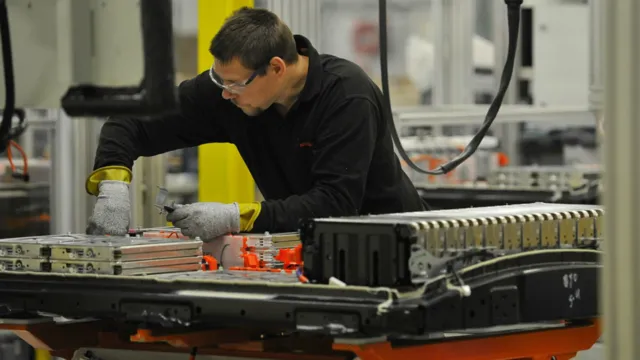
Growth projections for the industry
As the world becomes more interconnected, the global automotive industry is projected to experience significant growth over the next few years. According to recent reports, the market is expected to grow by an average of 7% per year between 2021 and 202
One of the key drivers of this growth is the rapidly increasing demand for electric vehicles, as governments around the world seek to reduce greenhouse gas emissions. In addition, advances in technology, such as autonomous driving and connected cars, are expected to further fuel the growth of this industry. Overall, while there may be some challenges ahead, the outlook for the global automotive market remains positive, with many exciting opportunities waiting to be explored.
Major Electric Car Makers
Electric car makers have been feverishly stockpiling batteries to keep up with surging demand for their eco-friendly vehicles. Tesla, the pioneering electric car maker, has been leading the pack, with a state-of-the-art “Gigafactory” in Nevada that can produce batteries at an unprecedented scale. Japanese car maker Nissan, which produces the Leaf electric car, is also investing heavily in battery research and development.
General Motors, which recently launched the Chevy Bolt, is betting big on electric car technology, with plans to launch 20 new all-electric models by 202 Chinese car maker BYD has also emerged as a formidable contender in the electric car market, with more than 40,000 electric cars sold in 2016 alone. With the demand for electric cars gaining momentum, it’s no surprise that battery production is becoming a key factor in the industry’s success.
Breakdown of battery stockpile by manufacturer
When it comes to the electric car market, there are a few major players who dominate the industry. These include Tesla, Nissan, General Motors, BMW, and Volkswagen. Each of these companies has their own unique approach to designing and manufacturing electric vehicles, but they all have one thing in common: the need for reliable and powerful batteries.
As a result, each company stockpiles a significant number of batteries to power their fleet of electric cars. According to recent data, Tesla leads the pack with a massive stockpile of over 5 GWh of batteries. Nissan trails behind with just over 1 GWh, while General Motors and BMW both have around 500 MWh of battery stockpiles.
Volkswagen, which has been surging forward with its electric vehicle production, has just over 300 MWh of batteries in stock. As you can see, Tesla is by far the leader when it comes to electric car batteries, but the competition is quickly catching up.
Trends in battery production and investment
When it comes to major electric car makers, there are a few names that come to mind: Tesla, Volkswagen, and Toyota. Each of these companies has invested heavily in creating a more sustainable future, and their efforts have not gone unnoticed. Tesla is perhaps the most well-known of the three, with their sleek and stylish electric vehicles taking the market by storm.
But Volkswagen and Toyota are not far behind, and both companies have developed their own unique approaches to electric car production. Volkswagen, for example, is investing heavily in battery production, with the goal of becoming the world’s largest producer of electric vehicle batteries by 2030. Toyota, on the other hand, is focusing on hybrid technology, with the belief that this is the most practical solution for reducing emissions in the short term.
In any case, it is clear that major electric car makers are prioritizing sustainability and investing in the future of clean energy.
Comparison of battery technology among manufacturers
When it comes to electric car manufacturers, the battery technology they use is one of the most important factors to consider. Each manufacturer has its own approach to battery technology, which can impact the driving range and charging time of their electric vehicles. For example, Tesla uses cylindrical batteries that are stacked vertically, while Nissan uses prismatic batteries that are in the shape of a rectangle.
Tesla’s batteries have been praised for their high energy density, which allows for longer driving ranges, while Nissan’s batteries have been criticized for their lower energy density and shorter ranges. Other electric car manufacturers like Ford and Volkswagen have also been developing their own unique battery technologies, with a focus on improving charging times and reducing costs. It’s important for consumers to research the battery technology used by each manufacturer and consider their individual driving needs before making a decision on which electric car to purchase.
Environmental Impact and Sustainability
Electric car makers are increasingly stockpiling batteries to ensure the sustainability and environmental impact of their vehicles. This trend is being driven by the growth of the electric vehicle market and the need for manufacturers to secure a steady supply of batteries. With demand for electric vehicles expected to increase in the coming years, ensuring that battery supplies are sustainable and environmentally responsible is becoming increasingly important.
Companies like Tesla and Volkswagen have invested heavily in their battery production capacity, with Tesla reportedly planning to build a battery gigafactory in Texas. These efforts aim to reduce the carbon footprint of the electric vehicle industry by sourcing materials, manufacturing, and disposal of batteries in a sustainable manner. It is also argued that increased battery recycling and the creation of circular supply chains can enhance the environmental impact of electric vehicles.
Overall, the trend of electric car makers stockpiling batteries is a positive development that demonstrates industry commitment to environmental sustainability and responsible supply chain management. As the demand for electric vehicles continues to grow, it is encouraging to see such efforts being made to ensure their long-term sustainability and mitigate their environmental impact.
How electric car batteries impact the environment
Electric car batteries have become the forefront of discussions on environmental impact and sustainability in the automotive industry. While electric vehicles (EVs) have the potential to significantly reduce carbon emissions compared to conventional cars with internal combustion engines, their batteries have a more complex environmental impact. The manufacturing process of EV batteries requires large amounts of energy and resources, including rare and expensive metals like lithium and cobalt.
The extraction and transportation of these metals can lead to environmental degradation and social injustices in some regions of the world. Additionally, the disposal of EV batteries after their lifespan is a concern as they can contain toxic chemicals that pose risks to humans and the environment. To minimize the environmental impact of EV batteries, various initiatives are being undertaken such as recycling programs, improved battery management systems, and sourcing of minerals from responsible suppliers.
It is crucial to address the issues related to EV battery production, usage, and disposal to ensure a sustainable future for the automotive industry and the environment.
Sustainability efforts of electric car makers
Electric car makers’ sustainability efforts are primarily focused on reducing the environmental impact of their vehicles. Making electric cars requires fewer raw materials than conventional cars, but producing batteries involves using toxic chemicals, which can harm the environment. However, car manufacturers are implementing more sustainable materials and production processes to minimize their impact.
For example, they are using recycled materials for car interiors and lightweight, eco-friendlier components. In addition, some car companies are also exploring renewable energy sources for charging electric cars, such as solar panels and wind power. Their goal is to create a sustainable ecosystem, where electric cars are just one part of a larger solution to reduce greenhouse gas emissions.
These sustainability efforts are essential in addressing the challenges of climate change and ensuring a cleaner, greener future.
Future Outlook
As electric car makers continue to innovate, one area that is receiving increased attention is their battery stockpile. These batteries are the lifeblood of electric vehicles, and makers are looking for ways to boost their performance and longevity. Some companies are working on designs that use a cobalt-free cathode, which can help reduce costs and improve performance.
Others are focusing on solid-state batteries, which offer higher energy density and faster charging times. With the demand for electric cars on the rise, it’s clear that battery technology will play a key role in the industry’s future growth. As a result, manufacturers are investing heavily in research and development to create batteries that are more efficient and environmentally friendly.
This means we can expect to see some exciting developments in the coming years that could make electric cars even more attractive to consumers.
Predictions for the future of electric car batteries
Electric car batteries have come a long way over the past decade, and the future looks even brighter. Predictions for the future of electric car batteries show that we can expect to see significant improvements in terms of their power, range, and charging time. Battery manufacturers are making strides in developing ultra-high-capacity batteries that will allow electric vehicles to run for hundreds of miles without needing a charge.
The use of solid-state batteries is also becoming more widespread, which will result in faster charging times and longer battery life. These advancements in battery technology will not only improve the performance of electric cars but also bring down their cost, making electric vehicles more accessible to the general public. With the demand for electric cars on the rise, battery technology will continue to evolve, and we can expect to see more innovative solutions in the near future.
What role electric car makers will play in shaping the industry
As the demand for electric cars continues to grow, automakers are playing an essential role in shaping the industry’s future. Automakers such as Tesla, Nissan, and General Motors are at the forefront of developing innovative technologies that are transforming the way we think about transportation. With Tesla leading the way, these companies are making huge strides in battery technology, charging infrastructure, and autonomous driving.
As these companies continue to expand their offerings and improve their technology, they are setting the standard for the rest of the industry. As consumers become more interested in electric cars and demand increases, electric car makers will play an even more significant role in shaping the future of the industry.
Conclusion
In the race to dominate the electric vehicle market, it seems that some of the biggest players are stockpiling batteries like they’re going out of style. From Tesla to GM, everyone seems to be hoarding these lithium-ion powerhouses, desperate to gain the upper hand on their competitors. But why all the fuss? Well, it’s simple.
The battery is the beating heart of any electric car, and whoever can produce the cheapest, most efficient and longest-lasting battery will be the one to reign supreme. And with demand only set to grow as more and more countries pledge to move away from fossil fuels, the stakes have never been higher. So, whether you’re a firm believer in the electric car revolution or not, one thing is clear: the future is electric, and the battle for the battery is just beginning.
“
FAQs
Which electric car makers have been stockpiling batteries?
Several electric car makers, including Tesla, Nissan, and Chevrolet, have been stockpiling batteries for their vehicles.
Why are electric car makers stockpiling batteries?
Electric car makers are stockpiling batteries to ensure a steady supply of the essential component for their vehicles, which could be impacted by supply chain issues or price fluctuations in the future. Additionally, they may be preparing for an expected increase in demand for electric vehicles in the coming years.
What are the benefits of electric car makers stockpiling batteries?
Stockpiling batteries allows electric car makers to have a consistent and reliable supply of this key component, which is essential for the production and sale of their vehicles. This could help them avoid potential shortages or price spikes in the future, ensuring they can continue to produce and sell their electric vehicles at a stable price point.
How are battery stockpiles affecting the electric car industry?
Battery stockpiles are helping to drive down the cost of batteries and make electric vehicles more affordable for consumers. Additionally, having a reliable and consistent supply of batteries is helping to increase the production and availability of electric cars, which could help shift the transportation industry towards more sustainable and environmentally-friendly options.

